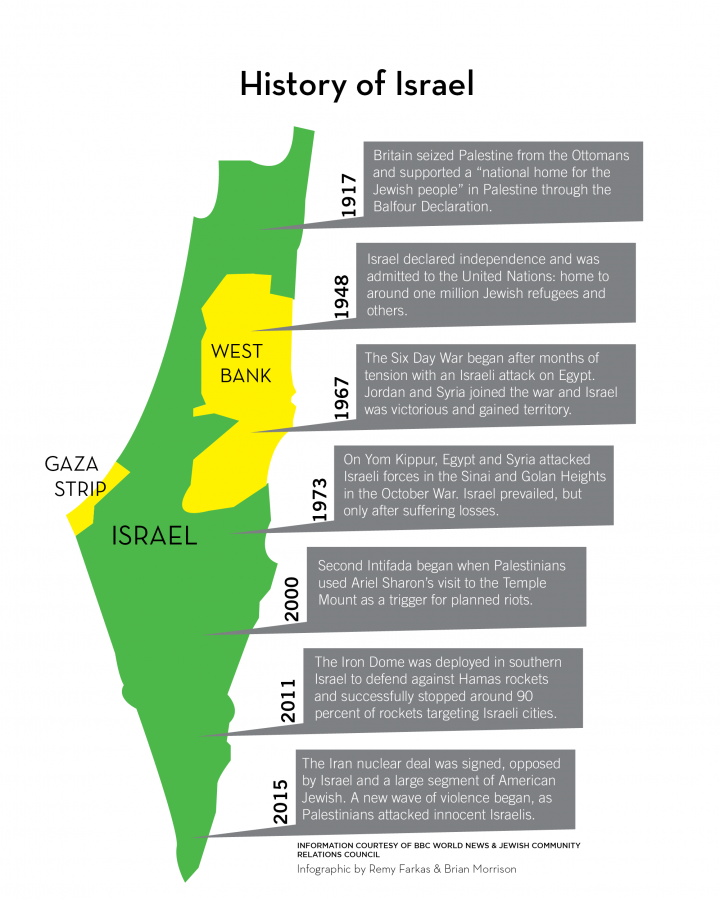Israel-Palestine conflict explained
January 21, 2016

Recent surges of violence by Palestinians continue to terrorize the Israeli people, highlighted by a recent terror attack on New Year’s Day, where at least two people were killed and seven wounded. This violence has been a constant disruption to Israelis’ way of life, the only democracy in the Middle East and a key strategic ally of the United States.
The events are reminiscent of the Second Intifada of the early 2000’s- a violent uprising of Palestinians, in which the Palestinian government sponsored widespread terrorist attacks against Israel. An underwhelming amount of global support and awareness persists, while a slew of uncontrolled stabbings, increased bombings and shootings of Israeli cities send shockwaves throughout the small middle-eastern country.
“To an extent [people need to be aware], people are being murdered in Syria and no one knows,” junior Ethan Perez said. “It’s important that everyone is informed, you can’t live in a bubble. If some people don’t want to hear bad things then they don’t have to, but it’s the right of everyone to be informed.”
With over 620 attacks since October, the number of victims rises with over 22 Israelis and Americans dead and over 221 wounded in that span. This unprovoked violence terrorizes innocent men, women and children. The media presents Israel as a violent provocateur, while Israel spins into the international spotlight in a difficult diplomatic situation.
Israel’s history is one which has been riddled with international controversy and conflict. The conflict between Israelis’ and the Palestinians’ right for statehood began in 1948, with the foundation of the Jewish state. Although granted the right to statehood by the United Nations (UN), 21 nations do not recognize Israel as an independent country. Challenged by many, Israel struggles to make diplomatic relations around the world and keep peace at home as the only Jewish nation in the world.
With the popularization of anti-Israeli ideology throughout the world, the rise of anti-semitic tendencies go hand in hand. The United States has taken action in order to reduce and control this rampant anti-semitism, as well as to reaffirm a strong US- Israel relationship.
“Unfortunately [anti semitism] is becoming commonplace,” Florida Congresswoman Ileana Ros-Lehtinen said. “We are trying to clamp down on this because hateful words lead to hateful actions and this is something we would have never previously tolerated.”
